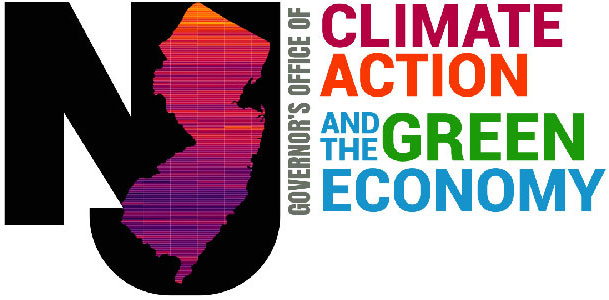Office of Climate Action and the Green Economy
NJ Energy, Climate, and Environment Work
Offshore Wind
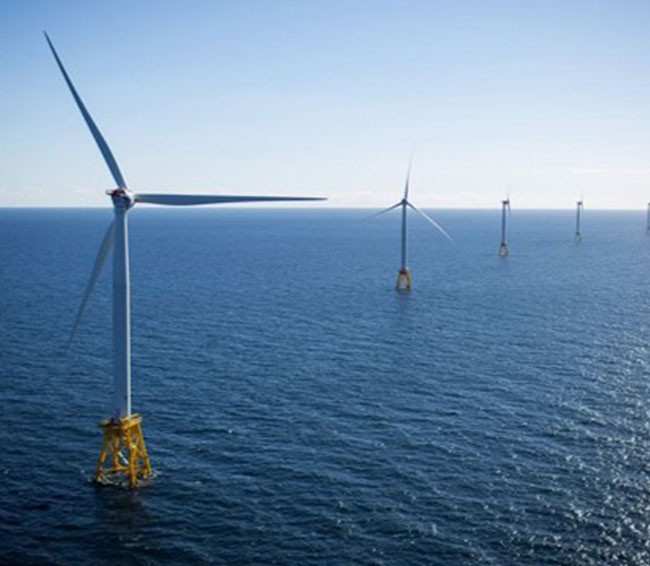
- The New Jersey Board of Public Utilities (NJBPU) is currently reviewing proposals received as part of the State’s fourth offshore wind solicitation, which will award between 1.2 GW and 4 GW of generation capacity. New Jersey also announced an accelerated schedule for the state’s fifth offshore wind solicitation, bringing forward its opening date by a year to the second quarter of 2025.
- The NJ Board of Public Utilities (BPU) has already awarded more than 3,750 MW of offshore wind – half of the 2035 current target – which is enough to power more than 3.2 million New Jersey homes. and reduce greenhouse gas emissions by 6 million tons annually.
- On January 24, 2024, the New Jersey Board of Public Utilities (NJBPU) awarded a combined 3,742 MW of offshore wind capacity to Invenergy and energyRE’s Leading Light Wind Project and Attentive Energy LLC’s Attentive Energy Two Project, advancing the State’s progress toward a 100% clean energy economy by 2035.
- The New Jersey offshore wind solicitations are:
- Atlantic Shores Offshore Wind, a 1,510 MW project
- Leading Light Wind, a 2,400 MW project
- Attentive Energy Two, a 1,342 MW project
- In September 2022, Governor Murphy signed Executive Order 307, increasing New Jersey’s offshore wind goal by nearly 50 percent to 11,000 megawatts by 2040. Along with increasing the state’s wind goal of 7,500, the EO also directs the New Jersey Board of Public Utilities to study the feasibility of increasing the target further.
- In November 2019, Governor Murphy’s Executive Order 92, New Jersey set the goal of generating 7,500 MW of offshore wind by 2035 to keep our State on track towards a 100% clean energy future by 2050.
- Governor Murphy announced in June 2020 that the New Jersey Wind Port will be constructed in Lower Alloways Creek, Salem County. The Wind Port will create a first-in-the-nation infrastructure production pipeline that will provide essential staging, assembly, and manufacturing activities related to offshore wind projects in New Jersey and throughout the East Coast. Phase 1 of construction broke ground in September 2021.
- New Jersey joined the Federal-State Offshore Wind Implementation Partnership, joining with 10 other East Coast states and the federal government to highlight a shared commitment on providing a roadmap that will identify key pathways for meeting state and federal offshore wind goals.
- NY/NJ/BOEM Regional Working Group on Supply Chain Development: BOEM, New Jersey, and New York meeting quarterly to collaborate on a shared vision to promote a domestic offshore wind supply chain. The working group’s focus is on:
- Enhancing domestic supply chain and minimize inefficiencies
- Delivering benefits and economic opportunities to underserved, disadvantaged and overburdened communities
- Engaging regional stakeholders
- Strengthening state and federal collaborations to achieve regional offshore wind goals
- Under the direction of the Administration, the BPU entered into a first-of-its-kind State Agreement Approach with PJM, New Jersey’s regional transmission organization, to collaborate on the most cost-effective and environmentally sensitive ways to create an offshore wind-powered transmission system to bring affordable, renewable energy to ratepayers.
Transportation
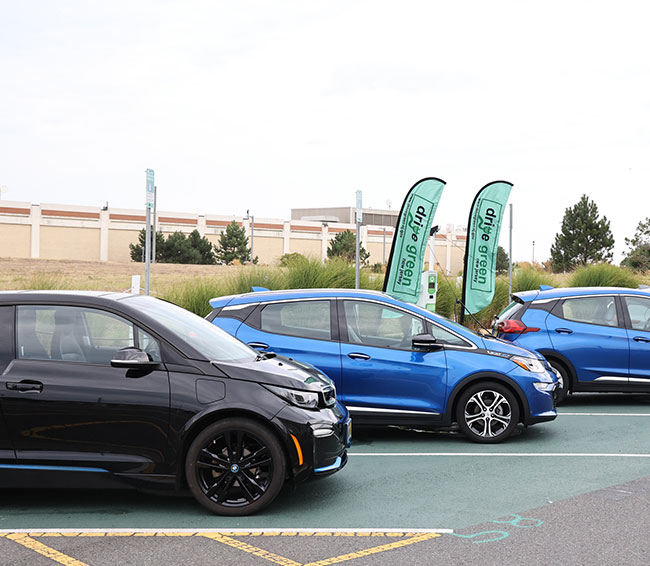
- The Murphy Administration critically prioritizes decarbonizing our transportation infrastructure, predominantly through adoption of electric vehicles (EVs).
- In February 2023 Governor Murphy directed the NJDEP to begin the stakeholdering process for the adoption of Advanced Clean Cars II, which calls for all cars and light-duty truck sold in-state be zero-emission by 2035, and amends Low-emission Vehicle Regulations. Advanced Clean Cars II offers opportunities to improve access to zero-emission vehicles in overburdened and lower-income communities, such as providing reduced price zero-emission vehicles for community mobility programs, producing affordable zero-emission vehicles, and retaining used vehicles in California to support the state’s complimentary policies and incentives.
- Governor Murphy signed the Electric Vehicle Act of 2020, landmark legislation which set the following goals:
- At least 330,000 of the total number of registered light duty vehicles in the State shall be plug-in electric vehicles by December 31, 2025;
- at least 2 million of the total number of registered light duty vehicles in the State shall be plug-in electric vehicles by December 31, 2035
- at least 85 percent of all new light duty vehicles sold or leased in the State shall be plug-in electric vehicles by December 31, 2040;
- By December 31, 2025, at least 400 DC Fast Chargers shall be available for public use at no fewer than 200 charging locations in the State, with at least 75 changers at travel corridor locations
- By December 31, 2025, at least 1,000 Level Two chargers shall be available for public use across the State, with the ability to be upgraded to higher power or DC Fast Chargers as appropriate
- By December 31, 2025, at least 15 percent of all multi-family residential properties in the State shall be equipped with EVSE for the routine charging of plug-in electric vehicles by residents through a combination of Level One EVSE, Level Two EVSE, or charger ready parking spaces;
- By December 31, 2025, at least 15 percent of all multi-family residential properties in the State shall be equipped with EVSE for the routine charging of plug-in electric vehicles by residents through a combination of Level One EVSE, Level Two EVSE, or charger ready parking spaces;
- By December 31, 2025, 20 percent of all franchised overnight lodging establishments shall be equipped with EVSE for routine electric vehicle charging by guests of the establishment by providing Level Two EVSE;
- By December 31, 2025, at least 25 percent of State-owned non-emergency light duty vehicles shall be plug-in electric vehicles, and by December 31, 2035 and thereafter, 100 percent of State-owned non-emergency light duty vehicles shall be plug-in electric vehicles;
- By December 31, 2024, at least 10 percent of the new bus purchases made by the New Jersey Transit Corporation shall be zero emission buses, and (b) the percentage of zero emission bus purchases shall increase to 50 percent by December 31, 2026, and 100 percent by December 31, 2032 and thereafter;
- By December 31, 2020, the department, in consultation with the board, shall establish other goals for vehicle electrification and infrastructure development that address medium-duty and heavy-duty on-road diesel vehicles and associated charging infrastructure, similar to the State goals for light duty vehicles and consistent with the technology and plug-in electric vehicle markets for those vehicle types.
- Established by MOU in 2019, the Partnership to Plug-in is co-led by the New Jersey Board of Public Utilities (BPU), New Jersey Department of Environmental Protection (DEP), and the New Jersey Economic Development Authority (EDA) to create a strategic and streamlined framework to support New Jersey’s electric vehicle ecosystem, with the goal of registering 330,000 Zero Emission Vehicles (ZEVs) by 2025.
- To ensure equitable access to EVs, the Murphy Administration has introduced and strengthened a number of EV incentive programs:
- The EV Law empowered BPU to create Charge Up New Jersey, a point-of-sale incentive program for light-duty plug-in electric vehicles and at-home electric charging infrastructure. In the first two years of the Charge Up Program, the State provided incentives for more than 13,000 EVs.
- The Charge Up Residential Charger Program offers a $250 rebate for the purchase of an eligible home charger.
- The Multi-Unit Dwelling (MUD) Electric Vehicle Charger Incentive program offers incentives toward the purchase and installation of eligible Level-Two EV charging equipment at apartment and condo complexes.
- NJ ZIP is a program created by NJEDA through the use of RGGI funding to support the purchase of zero-emission medium or heavy duty vehicles (MHDVs) through providing vouchers of least $25,000 towards MHDVs such as pick-up trucks and school buses.
- It Pay$ to Plug In is a DEP program that provides grants to offset the cost of purchasing and installing electric vehicle charging stations. The Program is awarded more than $9.4M towards 3,207 ports at 1,948 locations.
- eMobility is an equitable shared transportation program that provides clean transportation to citizens who may not own their own vehicles.
- The EV Tourism program provides funding for chargers at tourist locations across the state, to ease range anxiety for residents and out-of-state travelers at many destinations such as downtown areas, boardwalks, parks, or historic sites.
- The Clean Fleet program encourages local government entities to purchase electric vehicles and chargers. The Program allows local and state government entities in New Jersey to apply for $4,000 grants toward the purchase of battery electric vehicles, $5,000 grants for public Level-Two chargers, and $4,000 grants toward the purchase of a fleet Level-Two EV charging station(s).
Clean Buildings
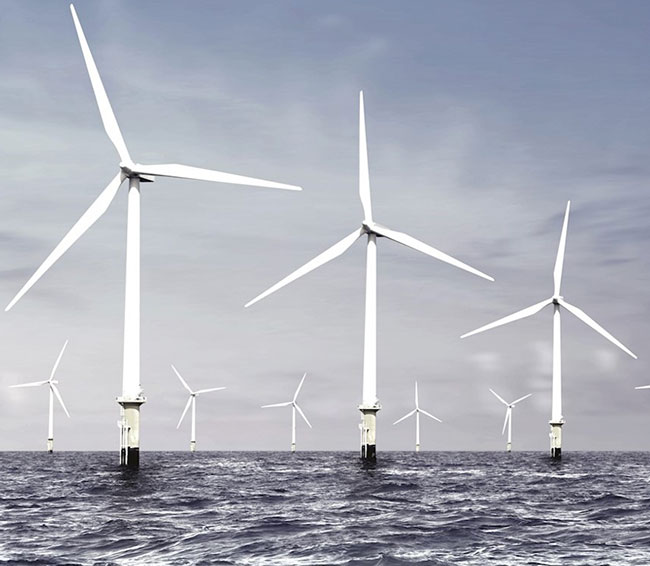
- Residential and commercial buildings account for the second largest share (26%) of the state’s GHG emissions. Space and water heating account for the majority of emissions from these sectors, with 87% of residential buildings and 82% of commercial buildings relying predominantly on natural gas.
- ‘Clean buildings’ are those that are designed, constructed and/or retrofitted with energy efficient systems and 100% zero emission space and water heating and appliances, which both reduce the GHG emissions of those buildings and lower operational costs.
- The New Jersey 80x50 Report includes a target of 89% reduction of building-related emissions, achieved by transitioning 90% of buildings to zero emission heating systems, in order to reach New Jersey’s emissions reduction goals by 2050.
- In February 2023 Governor Murphy announced a series of commitments to support New Jersey’s clean buildings sector:
- The Governor signed Executive Order 316, setting a goal of 400,000 homes and 20,000 commercial buildings constructed or retrofitted with zero-carbon heating and cooling systems by 2030, and at least 10% of low- and moderate-income homes be made ready for electrification, with updates to electrical systems and other repairs.
- Through Executive Order 317 Governor Murphy directed the NJBPU to work with stakeholders including utilities, environmental justice advocates, labor, and the Governor’s Clean Buildings Working Group to begin a formal proceeding to engage with stakeholders, including natural gas and electric utilities, consumer and environmental advocates, commercial and industrial gas users, delivered fuel companies, clean energy developers, labor unions, academics, Rate Counsel, and others concerning development of natural gas utility emission reduction plans and to develop recommendations for how the industry can meet these goals while considering cost and jobs.
- The State is leading by example in advancing Clean Buildings through several current pilot projects:
- The New Jersey Board of Public Utilities Whole House pilot, in collaboration with the NJ Department of Labor and Workforce Development’s Green Buildings Pilot, is designed to increase efficiency and advance electrification in 100 low-to-moderate income homes in Trenton, NJ
- The State Buildings Electrification Pilot builds on the New Jersey Board of Public Utilities successful Energy Savings Improvement Program (ESIP) to convert a small number of state facilities to electric heating systems and appliances.
Solar

- In January 2024, Governor Murphy signed A4782/S3123 to further strengthen New Jersey’s community solar program – expanding access to clean energy and lowering utility costs for New Jersey households. The Community Solar Energy Program (CSEP) allows individuals without the ability to install solar on their rooftops to access the benefits of solar energy, including significant energy savings. This bill simplifies the CSEP application process, provides CSEP subscribers with a more seamless consolidated energy bill, and makes more capacity available to develop community solar across the state.” Office of the Governor | Governor Murphy Signs Legislation to Expand Community Solar Energy Program (nj.gov)
- In August 2023, New Jersey established a permanent Community Solar program.
- Governor Murphy’s signage of the 2018 Clean Energy Act mandated the Board of Public Utilities (BPU) create New Jersey’s first Community Solar Pilot Program to ensure that low- and moderate-income (LMI) residents reap the benefits of renewable energy, especially folks who may rent their home, live in a multi-family building, or do not have the financial resources to pay for solar.
-
In 2021, BPU established a new Successor Solar Incentive Program, also known as the “SuSI Program”. The SuSI Program implements the Clean Energy Act of 2018 and the Solar Act of 2021. The SuSI Program provides incentives to eligible solar facilities to enable the continued efficient and orderly development of solar renewable energy generating sources throughout the state.
The SuSI Program replaces the SREC Registration Program (SRP), which was closed to new registration on April 30, 2020 pursuant to the Clean Energy Act, and the Transition Incentive (TI) Program, which provided a bridge between the Legacy SRP and the SuSI Program.
The SuSI Program is comprised of two sub-programs:
- The Administratively Determined Incentive (ADI) Program provides administratively set incentives for net metered residential projects, net metered non-residential projects of 5 MW or less, all community solar projects, and, for an interim period, projects previously eligible to seek conditional certification from the Board under Subsection (t).
- The Competitive Solar Incentive (CSI) Program will provide competitively set incentives for grid supply projects and net metered non-residential projects greater than 5 MW. Board Staff is currently working with stakeholders to develop the design of the CSI Program with the goal of holding the first solicitation by the end of 2022. For updates, please continue to check the Solar Proceeding page on the New Jersey’s Clean Energy Program website.
Funding
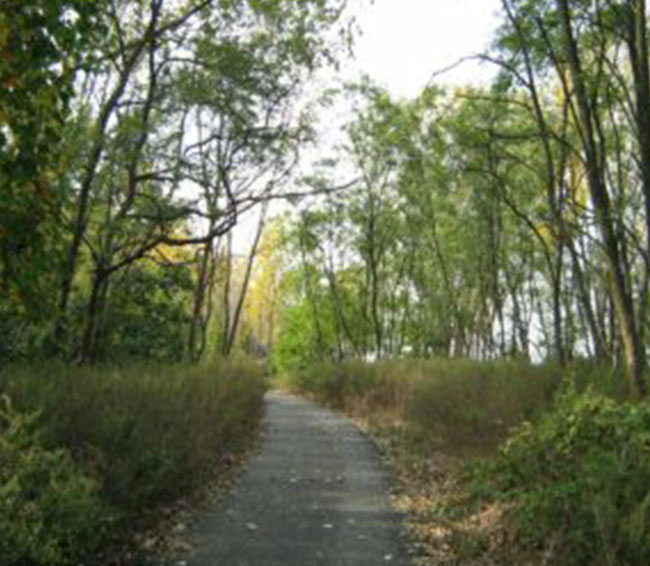
- Shortly into his administration, Governor Murphy re-entered New Jersey into the Regional Greenhouse Gas Initiative, a multi-state, market-based collaborative to cap and reduce CO2 emissions.
- New Jersey received over $372 million in RGGI proceeds from 2020-2022.
- On July 19th, 2023, the New Jersey Department of Environmental Protection (NJDEP), the New Jersey Board of Public Utilities (NJBPU), and New Jersey Economic Development Authority (NJEDA) released the Regional Greenhouse Gas Initiative (RGGI) Strategic Funding Plan: Years 2023 through 2025.
- The RGGI Strategic Funding Plan 2023-2025 ensures that New Jersey invests RGGI auction proceeds toward:
- Accelerating Healthy Homes and Building Decarbonization
- Catalyzing Clean, Equitable Transportation
- Strengthening New Jersey's Forests
- Promoting Blue Carbon in Coastal Habitats
Back
to top
 Official Site of The State of New Jersey
Official Site of The State of New Jersey